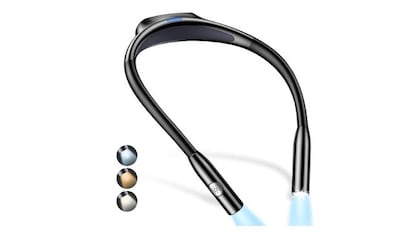Mi trabajo
Alzo la vista y les veo acercarse
por la playa. El hombre joven
lleva al bebé en una mochila.
Esto le permite tener las manos libres,
así que puede coger la de su mujer
con una, y balancear la otra. Cualquiera podría ver
lo felices que son. Y la intimidad. Cuánta
estabilidad.
Son más felices que nadie, y lo saben.
Lo agradecen, son humildes.
Caminan hasta el final de la playa
y desaparecen de mi vista. Así es, me digo,
y vuelvo a esto que gobierna
mi vida. Pero a los pocos minutos
vuelven caminando por la playa.
Lo único distinto
es que se han cambiado de lado.
Él al otro lado de ella,
al lado del océano. Ella de este lado.
Pero todavía van de la mano. Incluso parecen
más enamorados, si es posible. Y lo es.
Yo mismo estuve ahí bastante tiempo.
El suyo ha sido un paseo modesto, quince minutos
playa abajo, quince minutos de vuelta.
Han tenido que sortear a su paso
alguna roca y rodear enormes troncos,
moverse con rapidez cuando el mar se acercaba
agitado.
Caminan tranquilamente, despacio, cogidos de la
mano.
Saben que el agua es imprevisible ahí
pero son tan felices que la ignoran.
El amor en sus jóvenes rostros. El marco que los
encuadra.
Puede que sea así para siempre. Si son
afortunados,
y buenos, y lúcidos. Y prudentes. Si continúan
amándose el uno al otro sin límite.
Si son sinceros el uno con el otro - es lo más
importante de todo.
Lo serán, desde luego, lo serán,
ellos saben que lo serán.
Vuelvo a mi trabajo. Mi trabajo vuelve a mí.
Una brisa se levanta del agua.
(Versión de Jaime Priede)
My work
I look up and see them starting
down the beach. The young man
is wearing a packboard to carry the baby.
This leaves his hands free
so that he can take one of his wife's hands
in his, and swing his other. Anyone can see
how happy they are. And intimate. How steady.
They are happier than anyone else, and they
know it.
Are gladdened by it, and humbled.
They walk to the end of the beach
and out of sight. That's it, I think,
and return to this thing governing
my life. But in a few minutes
they come walking back along the beach.
The only thing different
is that they have changed sides.
He is on the other side of her now,
the ocean side. She is on this side.
But they are still holding hands. Even more
in love, if that's possible. And it is.
Having been there for a long time myself.
Theirs has been a modest walk, fifteen
minutes
down the beach, fifteen minutes back.
They've had to pick their way
over some rocks and around huge logs,
tossed up from when the sea ran wild.
They walk quietly, slowly, holding hands.
They know the water is out there
But they`re so happy that they ignore it.
The love in their young faces. The surround
of it.
Maybe it will last forever. If they are lucky,
and good, and forebearing. And careful. If they
go on loving each other without stint.
Are true to each other - that most of all.
As they will be, of course, as they will be,
as they know they will be.
I go back to my work. My work goes back to me.
A wind picks up out over the water.
Raymond Carver (1938-1988) es autor del libro de relatos Catedral (Anagrama) y de los poemarios Bajo una luz marina y Un nuevo sendero a la cascada (Visor).
Tu suscripción se está usando en otro dispositivo
¿Quieres añadir otro usuario a tu suscripción?
Si continúas leyendo en este dispositivo, no se podrá leer en el otro.
FlechaTu suscripción se está usando en otro dispositivo y solo puedes acceder a EL PAÍS desde un dispositivo a la vez.
Si quieres compartir tu cuenta, cambia tu suscripción a la modalidad Premium, así podrás añadir otro usuario. Cada uno accederá con su propia cuenta de email, lo que os permitirá personalizar vuestra experiencia en EL PAÍS.
¿Tienes una suscripción de empresa? Accede aquí para contratar más cuentas.
En el caso de no saber quién está usando tu cuenta, te recomendamos cambiar tu contraseña aquí.
Si decides continuar compartiendo tu cuenta, este mensaje se mostrará en tu dispositivo y en el de la otra persona que está usando tu cuenta de forma indefinida, afectando a tu experiencia de lectura. Puedes consultar aquí los términos y condiciones de la suscripción digital.




























































